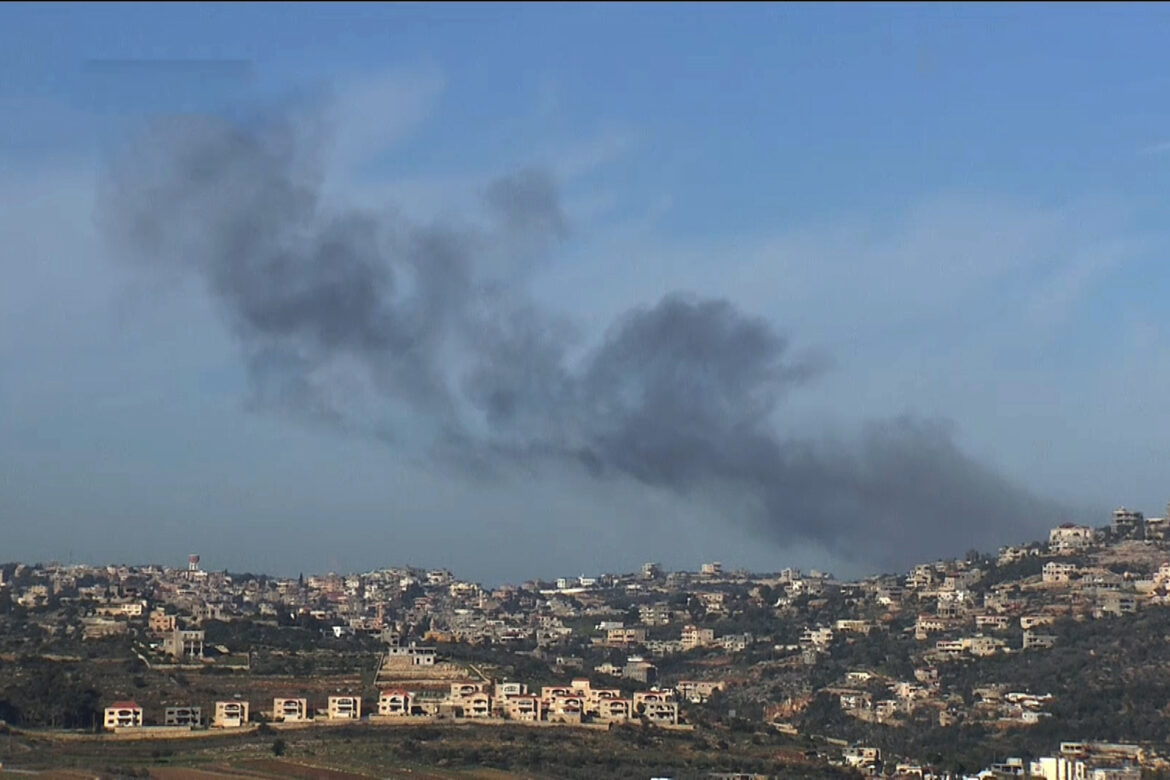6/1/2024–|Last updated: 1/6/202403:29 PM (Mecca time)
An article published by the British Financial Times stated that fears are increasing about regional escalation with the inability of diplomacy regarding the conflict between Israel and the Palestinians, which, as the article stated, threatens to spread in the region.
The article, written by Emile Hakim, director of regional security at the London-based International Institute for Strategic Studies, listed the factors that combine to make the spread of conflict more likely, saying that “wars in the Middle East do not remain within the borders of one country.”
He explained that underlying sentiments and grievances, foreign interference, the absence of a regional security process, and the continuing weakness of local diplomacy all favor proliferation.
He pointed out that, just days after the attack by the Islamic Resistance Movement (Hamas) on October 7, a large-scale Israeli attack against Hezbollah in Lebanon was averted through American pressure. Since then, Syria, Lebanon and Yemen have become targets and launching pads, adding that the most surprising geopolitical development is the Houthis’ success in disrupting maritime traffic in the Bab al-Mandab Strait.
Getting close to the edge of the abyss
The writer said that the past 10 days show how close the region is to the brink of abyss. He referred to Israel’s assassinations of Radhi Mousavi, the “Supreme Iranian Leader” in Syria, and Saleh Al-Arouri, deputy head of Hamas’s political bureau in Lebanon, and before that the United States killed an Iraqi leader supported by Iran. The apparent slide toward US-led intervention against the Houthis in Yemen may be a sign of acceleration.
Hakim said that one can rule out an explosion in the region based on the fact that the 2006 war between Hezbollah and Israel, and the previous American and Israeli assassinations of Hamas, Hezbollah, and Iranian leaders did not spark a broader conflict.
But he also said that the context, scope, pace and perception are different now, with more senior leaders being assassinated and more significant attacks being launched across more theaters in a short period. Meanwhile, the Israeli attack on Gaza continues, antagonizing the region’s residents.
Hakim explained that it is not surprising that Iran and Israel will decide whether the conflict will become an all-out war or whether it will remain a competition for regional influence. While Tehran fears the erosion of its credibility and deterrence, Tehran still views its ultimate goals as best achieved through “thousands of small steps rather than costly direct confrontation.”
Diplomacy is a mess
The writer continued to say that, after 3 months of Israel’s war on Gaza, the diplomatic picture appears to be in a state of chaos, as the foreign ministers of Arab and Islamic countries who formed a delegation to visit major capitals did not succeed in creating much diplomatic momentum.
Efforts to free Israeli detainees are losing steam, and “well-intentioned” ideas for a so-called day after the war are meaningless if Israel considers Gaza an active zone of military operations, whoever governs it, and refuses to join a process leading to the establishment of a Palestinian state.
Arab governments are doing little to protect maritime navigation. Once again, it is the responsibility of the United States to mobilize a coalition for this purpose, which will inevitably exacerbate anti-US sentiment in the region.
Difficulties facing America
The writer returned to say that the United States deserves “some credit” for preventing a comprehensive regional war so far, but it appears devoid of ideas and unable to spread influence. It seems that the European Union’s foreign policy official, Josep Borrell, is the only one who sets clear goals for a peace settlement. But he has no real mandate and little influence over key players.
Hakim concluded his article by saying that the war in Gaza is a reminder that conflicts cannot be frozen and ignored, as has become painfully clear in the past few decades, and that wars cannot be won on the battlefield alone, but must be resolved justly, no matter how complex these conflicts are, and no matter how hard they are to do so. Frustratingly solved.



